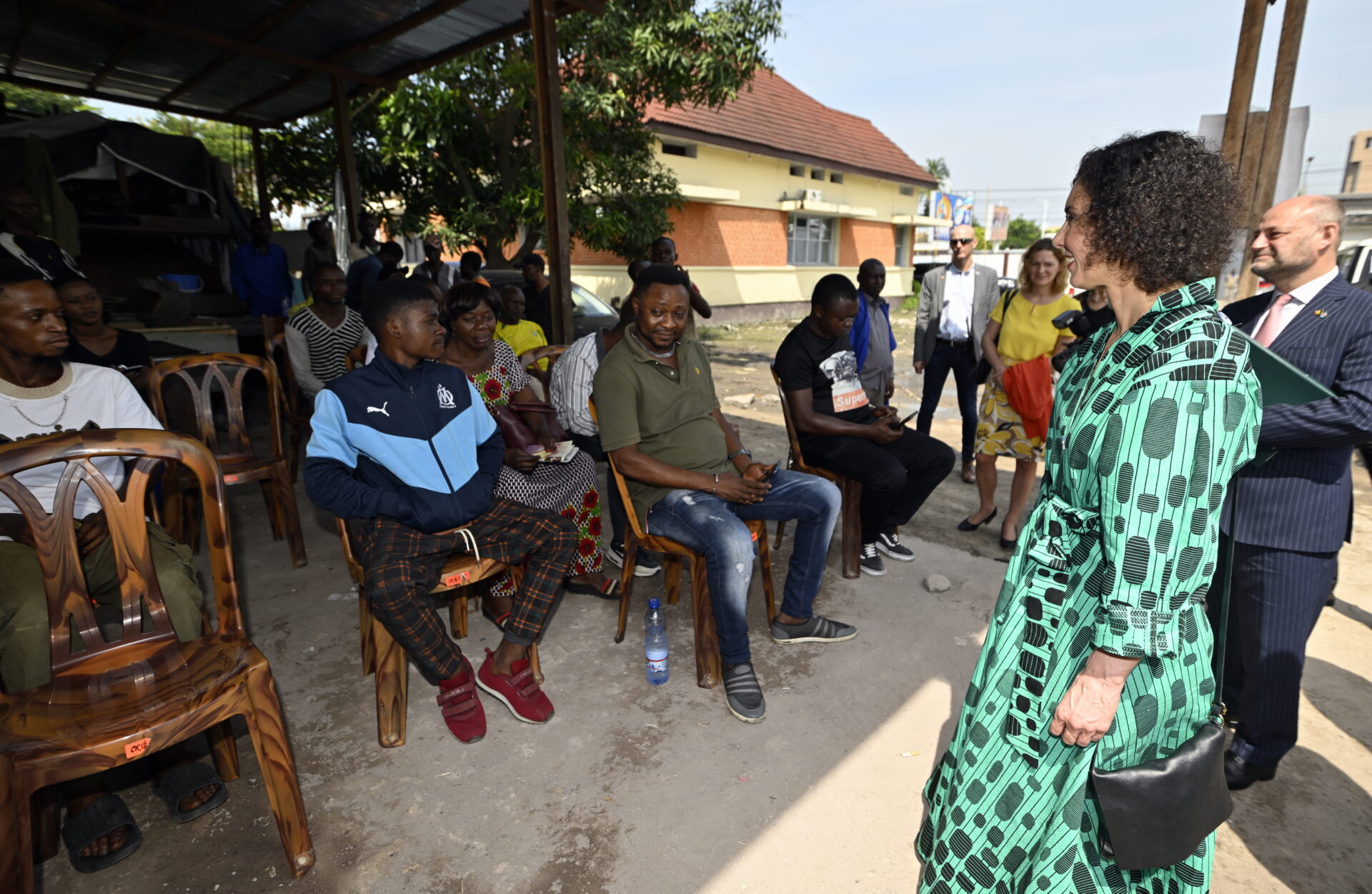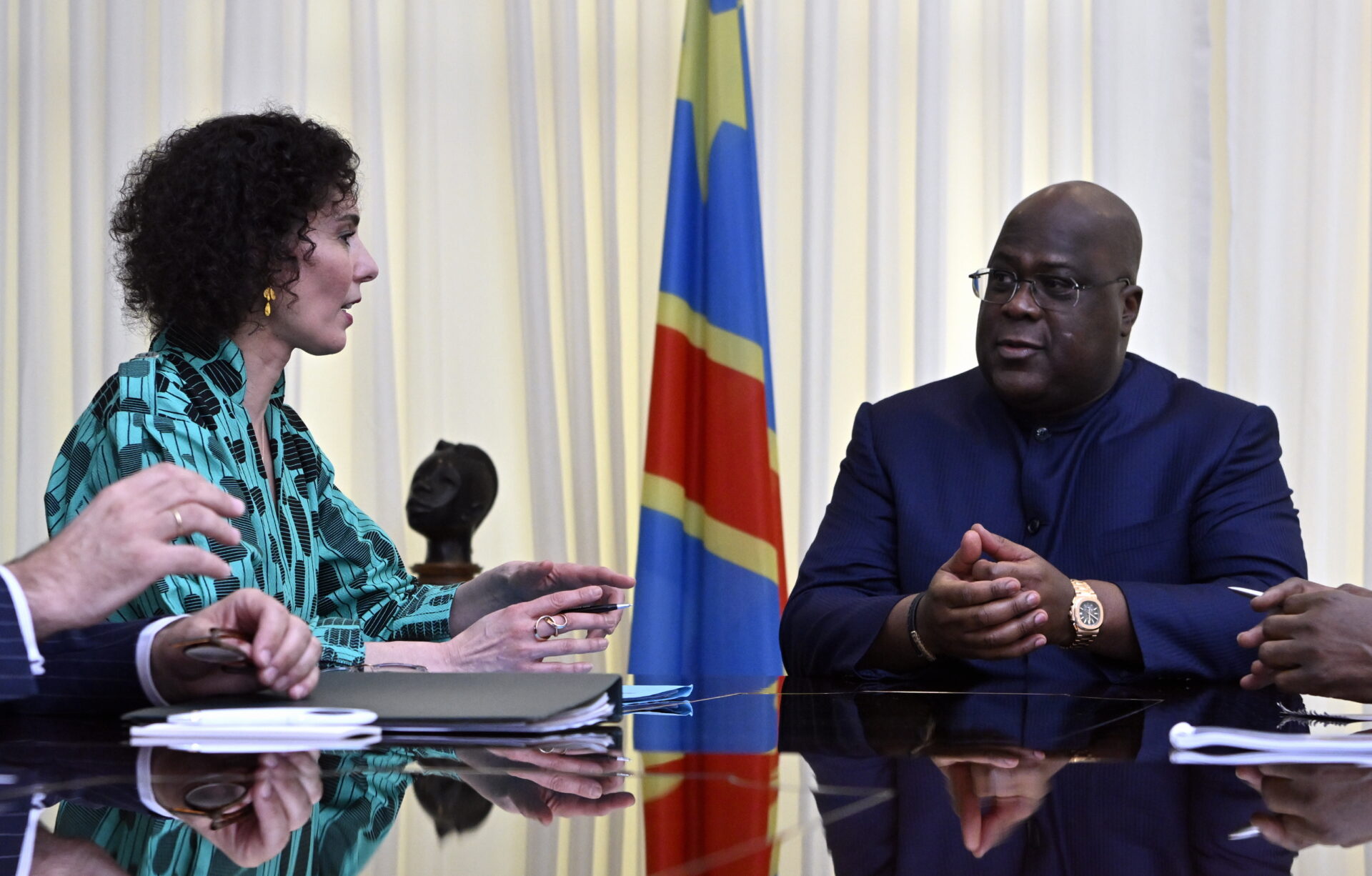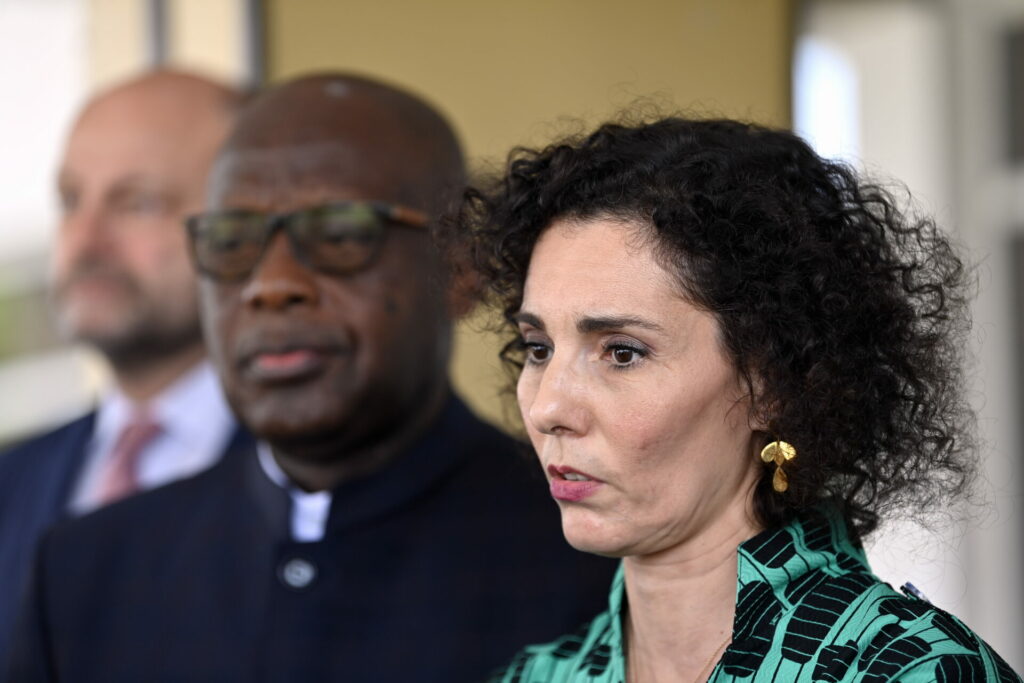During a trip by Belgian Foreign Minister Hadja Lahbib to the Democratic Republic of Congo (DRC), Lahbib has called on the nation to “pull itself together” so that real elections can take place in the country as planned.
The DRC has been ravaged by war and instability since the late nineties, fought between warring factions and often across borders with its neighbours. The country is scheduled to organise elections at the end of the year, but the continued Kivu conflict has led to renewed violence in the east of the country.
M23 rebels have captured new villages in renewed offensives in January, local media says, leading to a growing humanitarian crisis in the region and increasing violence. This renewed conflict poses problems for the DRC’s already fragile democracy. In a recent visit by the Pope to the region, the head of the Catholic church renewed calls for peace.
“The challenge is immense,” highlighted Lahbib after numerous talks with Congolese ministers and representatives of civil society groups during her last day in Kinshasa. She fears that the current levels of violence will impede the holding of truly democratic elections.
“We need to regain stability, and for that it is necessary that the main leaders talk to each other. The whole process of democratisation that is underway depends on it,” the minister said.
Unstable democracy
During her visit, civil society representatives drew the minister's attention to “daily massacres” committed in the east of the country. To improve the situation, they say, there must be a stronger reaction from the international community and sanctions against Rwanda, who are believed to be sponsoring insurgents within the DRC.

Foreign minister Hadja Lahbib pictured during a visit to an election registration center, in Kinshasa, DR Congo, during a diplomatic mission in Angola and Congo, Friday 03 February 2023. Credit: BELGA PHOTO/ ERIC LALMAND
“This question does not depend on us. We denounced the interference, including that of Rwanda within the M23 rebels, but the decision rests with the United Nations Security Council, of which we are not members. The case is under review. But above all, the DRC must pull itself together and face the challenges that are its own. For the voice of the people to be heard, there must be good governance,” the minister told the Belga news agency.
Lahbib says that Belgium is waiting on “clear signals” from Kinshasa on its expectations, in particular regarding sending European observers to accompany the electoral process. “It is not enough to say that we are in favour of it, we need a request and concrete actions to organise their arrival,” she added.
Deteriorating situation
Eight months after the visit of the Belgian Royal Family and Prime Minister Alexander De Croo to the DRC, during which Belgium called on Congolese authorities to tackle its problems head-on, the situation has deteriorated significantly, to the disappointment of Belgium's Foreign Minister.

Foreign minister Hadja Lahbib and DRC Congo President Felix Tshisekedi pictured during a diplomatic meeting in Kinshasa, DR Congo, during a diplomatic mission in Angola and Congo, Friday 03 February 2023. Credit: BELGA PHOTO/ ERIC LALMAND
“We are already heavily involved, whether in transitional justice, military training, development cooperation,” the minister said. “We are ready to do even more, but for that you need a positive climate. More support cannot be provided without improved governance.”
Related News
- Today in History: Belgium acknowledges role in assassinating Congolese leader Lumumba
- At least 23 civilians killed in attack in eastern DR Congo
Despite the overall pessimism behind the Belgian official visit to the DRC, Lahbib said that she felt a “real desire” for elections to take place under the best conditions, both by the President of the Republic and representatives of opposition parties.
There are hopes for a renewed dialogue in the Kivu conflict today in the Burundian capital of Bujumbura, where the presidents of Rwanda and the DRC are set to sit at the same table during a meeting of the Community of States of East Africa. Belgium will watch the meeting with some interest, and “expects a lot” from the African leaders.

